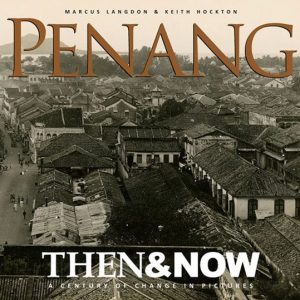In 1999, the people of Indonesia’s Riau Archipelago were angry. Resentful of decades of “internal colonialism” by Mainland Sumatra, and concerned that they lacked the education and skills to flourish in a globalised world, they dreamed of inhabiting a province of their own. When the post-authoritarian state committed itself to democracy and local autonomy, they lobbied vigorously and successfully for the region to be returned to its “native” Malay residents. Riau Islands Province was born in 2004. This book explores what happened next.
Riau Archipelago is a place of remarkable diversity of over 3,200 islands nestling in the waters of the South Sea. Only a few kilometres of water separate grimy ports from picturesque tropical islands in which small villages stand on wooden platforms above the tidal zone. Islands are remote and inaccessible; others enjoy high-speed connections to Singapore and a flow of international visitors, and investment. It is a place that was once home to a precolonial sultanate, where Islamic intellectuals wrote on the correct code of conduct for Malays and Muslims, the first Malay-language dictionary was compiled, and where who proudly self-identify as Malays live, work and do their best to preserve Malay culture. The region has also long been to one of Indonesia’s most vibrant Chinese populations, was both a sanctuary for South Vietnamese refugees and a haven Eastern Indonesian pirates and mercenaries, and is now trying reinvent itself as a centre of global manufacturing. Scores arrive every clay hoping to “make it big”, while indigenous gypsies (orang laut) struggle to preserve their nomadic seafaring way of life.
Living in a new province created “for Malays” forced Riau Islanders to engage with thorny questions over what it meant to be Malay and how to achieve the official goal of becoming globally competitive “human resources”. Putting nuanced ethnographic observations of life in the islands into a provocative dialogue with theorists ranging from Ziiek to Sartre, this book explains how feelings of unsettledness and doubt came to permeate the province as a result of its very creation. Offering fresh perspectives on commerce, spirit beliefs, education and culture, Being Malay in Indonesia challenges much of the received wisdom in the anthropology of Southeast Asia and makes a powerful case for the importance of feelings, sentiments and affect in studies of local development and political change.
Life in the Riau Islands is about much more than being Malay. Yet the issue of Malayness is never far away. This book hopes to explain why that should be—and in doing so uncovers subtle and often surprising ways in which decentralisation policies unsettle and refashion social and political life.
About the author: Nicholas J. LONG is Assistant Professor of Anthropology at the London School of Economics and Political Science.
Editorial reviews
Vividly written and theoretically nuanced, this work is a welcome, important, and fascinating study for students of Indonesia and for anthropologists interested in the politics of subjectivity. — Robert W. Hefner, Boston University






